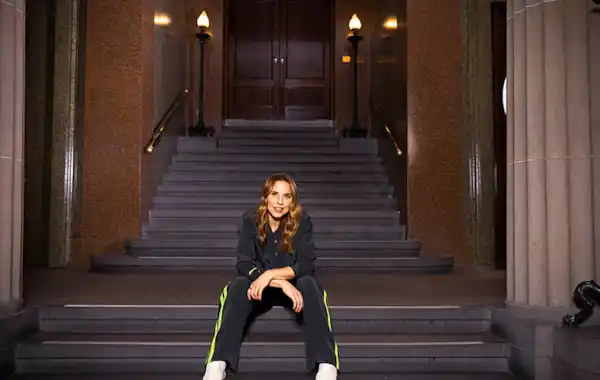02 September 2024
|
It’s fascinating watching the episodes of Who Do You Think You Are? on the TV, seeing the twists and turns in the family story as it is gradually pieced together and revealed. But family history isn’t just something for celebrities. You can give yourself the Who Do You Think You Are? treatment. Below is a quick check list of some of the steps and records used in the episode with Melanie Chisholm (aka 'Sporty Spice'), to trace her ancestors.
Mel C's story on Who Do You Think You Are?
Is Melanie Chisholm "Scouse enough" to be a Scouser? She's excited to find out more about her ancestors. What does she know: she has the name O'Flaherty in mind, but she doesn't know why ... she is wondering whether it's her great-great-grandmother's maiden name.
Research into Melanie's family revealed that they lived on Scotland Road, Liverpool in court housing. A very deprived area, with overcrowded households and extremely limited facilities, Melanie's ancestors would have experienced extreme poverty.
It was on the 1939 Register that Melanie learnt that one of her ancestors was a money lender and the other was a cloth sorter.
Together these two women represented very different life experiences. The job of a 'cloth sorter' was incredibly hard, sitting on the floor, sorting through filthy rags. The occupation of 'money lender' was a little more complicated for Melanie to learn about: money lenders of the period, who were lending at extortionate rates to others in their community, had a reputation for bullying behaviour as they worked to recoup their money.
On balance Melanie found it a very rewarding experience. "I have learnt so much about my great-grandmother Mary. I actually feel really close to her, even though I never met her," says Melanie. "She came from nothing. She was a completely self-made woman."
THE RESEARCH TIPS
Find out more – Start your search …
Birth certificate - Tip: when searching for your ancestor's birth certificate, take a little time to explore the birth index a little further and see whether your ancestor had any siblings. Melanie learnt that her ancestor was one of nine siblings for instance! Insights such as this can add colour to your family history.
Order birth certificates – Birth certificates provide the baby’s birth date and place, and also the names of the parents and occupation of the father. While the index of the register is free to search online, you need to pay to order the birth certificate. It is well worth it, however, providing key details and important proof about your family history research.
To order a birth certificate in England and Wales, search the index at https://www.gro.gov.uk/gro/content/certificates/indexes_search.asp. When you have identified the correct entry, order a copy of the certificate (e.g. a digital copy costs £3).
Marriage certificates – Marriage certificates for England and Wales can also be ordered from the link above. But first you'll need to find your ancestor's details in the index and make a note of the volume number and the page number (as you'll be asked for these when you place your order). Search the indexes free at FreeBMD.
Census – Census records are extremely useful as they can very often provide the whole family unit in a single record (for instance, parents with their children). In addition, many census records for England and Wales have been digitised and are readily available via subscription websites such as Ancestry, Findmypast, and as indexes via FreeCen.
1939 National Register – - this register was created in September 1939, when Britain had just recently joined the Second World War, and listed all civilians with their names, ages, occupations and addresses. The registers for England and Wales have been digitised and are available at Ancestry and Findmypast.
Tip: learn about their street. An address is just a starting point. Try and track down the road on which your ancestors lived on a map from the time period. Explore the map to try and gain a feel for how crowded the buildings were; was there space for possible gardens; did they live near a park or a railway station? Try searching the internet and local history groups (for instance on Facebook) for photos of your ancestors' street from the time, and to learn more about the street.
Find details of other episodes in the 2024 series of Who Do You Think You Are?
Get your own family history started with a FREE video!
We're also celebrating the new series by offering family historians everywhere a free video on using the popular Ancestry website.
Getting started with Ancestry webinar recording
With over 30 billion records, Ancestry is a great place to start your family history. Whether you’re new to genealogy or just looking for a refresher, Laura House has some top tips for building your tree, navigating the database, and exploring your DNA results.
SIGN UP AND CLAIM YOUR FREE VIDEO







